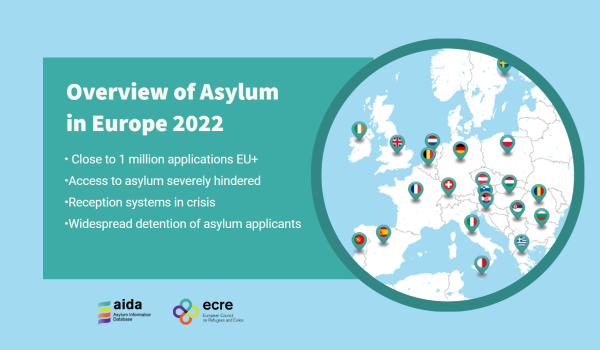This briefing prepared on the basis of country updates from the Asylum Information Database (AIDA) managed by ECRE, provides an overview of key trends in asylum in Europe in 2022 as documented in AIDA.
The briefing demonstrates that, while asylum systems are in place and functioning across Europe, the rights of people in need of international protection are still regularly violated and significant gaps in national asylum systems continue to be reported. This is despite the positive response of states to the displacement from Ukraine, which created additional challenges but also demonstrated that management of large-scale displacement is possible. For the asylum system as a whole, access to asylum remains a particular concern, as does the quality and length of asylum procedures. Reception systems came under pressure in an increasing number of countries, often due to a lack of sufficiently robust contingency planning, and detention of asylum applicants remained commonplace, rather than being a limited exception.
The AIDA database contains detailed information on asylum procedures, reception conditions, detention, and the content of international protection in 23 European countries. The country reports are written by national experts in cooperation with a variety of stakeholders, ranging from civil society organisations and lawyers to national authorities. The reports are edited and verified by ECRE. The database is widely relied upon by European and national policy makers, legal practitioners, and Courts.
For further information:
- AIDA, Asylum in Europe: the situation of applicants for international protection in 2021
- AIDA Asylum adjourned: the situation of applicants for international protection in 2020

